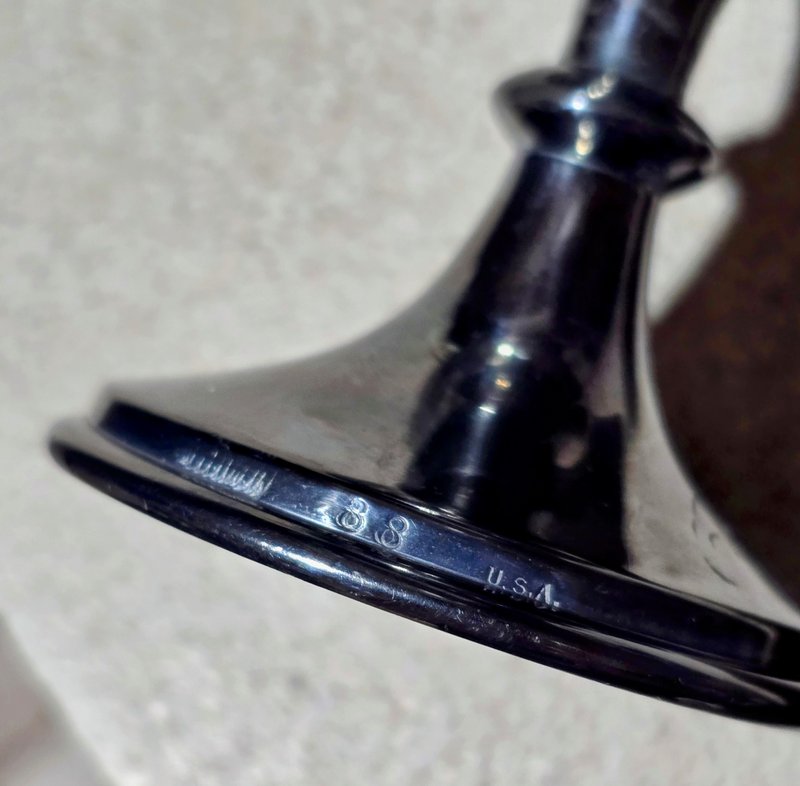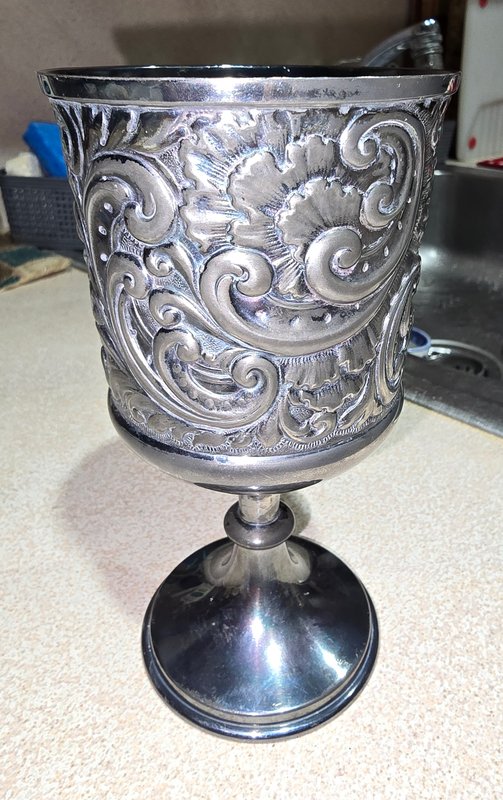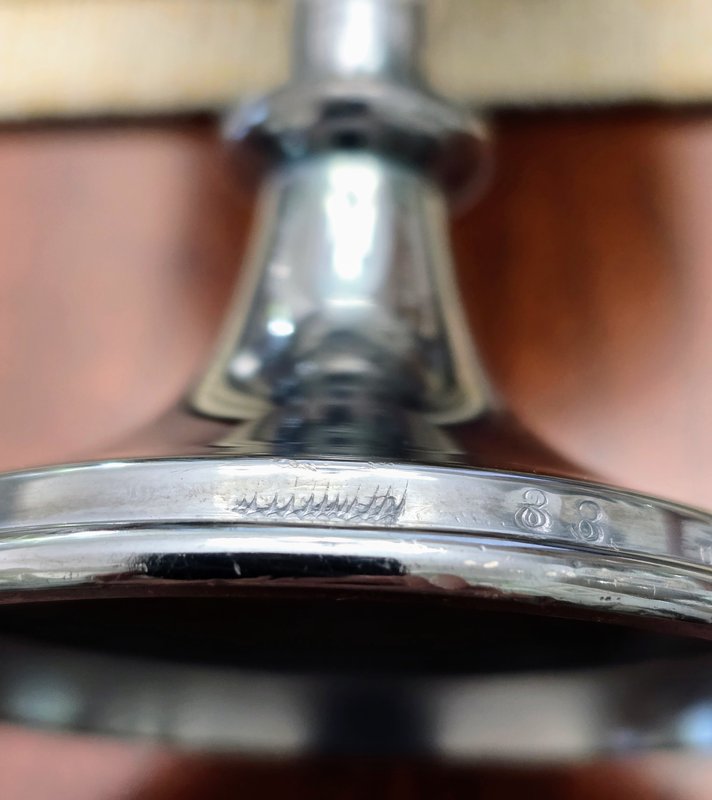
" Pfc. Louis A. Cilibinli, 337th F.A. Bn., 88th Div., stands guard in one of the rooms used to store several million dollars worth of art treasures stolen by the Nazis and found by men of the 88th Div."
::::: I can't recall ever seeing "U.S.A." on a piece of silver plate, that "88" looks a little bit crude (to my eyes at least), and the zig-zag mark is something I have never seen before on silver-plate (did someone try to assay this cup using the "old method" of assay that was more common in the 18th century?) so I guess the only thing to do is to have it professionally tested, just to be sure, even though it really does look like silver-plate, there are rare exceptions when the owner was convinced an object was made of silver-plate and it turned out to be around 80% solid silver (800 silver) or some purity level a bit lower. ::::::






